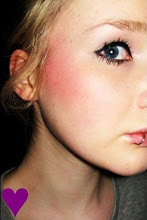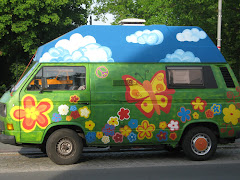so alsö
am nächsten freitag ist das konzert in hamburg, bmth & adtr. ich muss noch ziemlich viel arbeiten, um genau zu sein musste ich gestern , dann noch heute, morgen und dienstag. aber was solls, ich muss geld haben
bahntickets hin- und zurück 40 euro
bahn in hamburg 15 euro
tshirt 20 euro
ICH MUSS DRAN DENKEN; MEIN EINTRITTSTICKET MITZUNEHMEN
arbeiten macht kein spaß, nich wenn man mehr als einmal die woche da hin muss und man nichtmal raucherpausen oder son kack hat, aber what if
naja, gestern war ich noch nach der areit in di stadt gefahren und wollte bissen was trinken, war aber auch kaka. ich glaub ich bleib die nächsten tage einfach mal ein bisschen alleine, besseris
Samstag, 7. November 2009
Dienstag, 3. November 2009

IRELAND
Government
Ireland is a sovereign, independent, democratic state with a parliamentary system of government. The president, who serves as head of state in a largely ceremonial role, is elected for a 7-year term and can be re-elected only once. The current president is Mary McAleese, who is serving her second term after having succeeded President Mary Robinson--the first instance worldwide where one woman has followed another as an elected head of state. In carrying out certain constitutional powers and functions, the president is aided by the Council of State, an advisory body. On the Taoiseach's (prime minister's) advice, the president also dissolves the Oireachtas (Parliament).
The prime minister (Taoiseach, pronounced "TEE-shuck") is elected by the Dail (lower house of Parliament) as the leader of the political party, or coalition of parties, which wins the most seats in the national elections, held approximately every 5 years (unless called earlier). Executive power is vested in a cabinet whose ministers are nominated by the Taoiseach and approved by the Dail.
The bicameral Oireachtas (Parliament) consists of the Seanad Eireann (Senate) and the Dail Eireann (House of Representatives). The Seanad is composed of 60 members--11 nominated by the prime minister, 6 elected by the national universities, and 43 elected from panels of candidates established on a vocational basis. The Seanad has the power to delay legislative proposals and is allowed 90 days to consider and amend bills sent to it by the Dail, which wields greater power in Parliament. The Dail has 166 members popularly elected to a maximum term of 5 years under a complex system of proportional representation. A member of the Dail is known as a Teachta Dala, or TD.
Judges are appointed by the president on nomination by the government and can be removed from office only for misbehavior or incapacity and then only by resolution of both houses of Parliament. The ultimate court of appeal is the Supreme Court, consisting of the chief justice and five other justices. The Supreme Court also can decide upon the constitutionality of legislative acts if the president asks for an opinion.
Local government is by elected county councils and--in the cities of Dublin, Cork, Limerick, and Waterford--by county borough corporations. In practice, however, authority remains with the central government.
Irish politics remain dominated by the two political parties that grew out of Ireland's bitter 1922-23 civil war. Fianna Fail was formed by those who opposed the 1921 treaty that partitioned the island. Although treaty opponents lost the civil war, Fianna Fail soon became Ireland's largest political party. Fine Gael, representative of the pro-treaty forces, remains the country's second-largest party. The Progressive Democrats, Labour, Sinn Fein, and the Greens are the other significant parties.
The May 2007 national elections brought the Fianna Fail party and its leader Bertie Ahern back to power in a coalition government for an unprecedented third five-year term. Coalition members joining Fianna Fail were the Green Party and the Progressive Democrats. Ahern appointed Finance Minister Brian Cowen Deputy Prime Minister (Tanaiste, pronounced "TAW-nish-tuh"). On April 3, 2008 Ahern announced his intention to resign as leader of Fianna Fail and Taoiseach on May 6. Cowen was elected leader of Fianna Fail on April 5, and assumed office on May 6. He was elected Taoiseach on May 7. Cowen appointed Mary Coughlan, Minister for Enterprise, Trade and Employment as Tanaiste. The Foreign Minister is Micheal Martin.
Local and European elections took place in June 2004 and saw gains for opposition parties. The election also featured a referendum on citizenship. Until that time, Ireland had granted citizenship on the basis of birth on Irish soil. Concerns about security and social welfare abuse prompted the government to seek to bring citizenship laws in line with the more restrictive policies prevalent in the rest of Europe, and the 2004 referendum measure passed by a wide majority. Now, persons with non-Irish parents can acquire Irish citizenship at birth only if at least one parent has been resident in Ireland for three years preceding the birth.In a referendum held on June 12, 2008 Irish voters rejected the European Union (EU) Lisbon Treaty by 53.7% to 46.3%. The margin of the "no" vote was surprisingly high given that most of the political parties, trade unions, employers' organizations, and farmers' associations endorsed it. However, no single factor emerged as decisive in the referendum's defeat. The government began a "comprehensive analysis" of the Irish vote, which they intend to present to their EU partners at the EU Council meeting in October.
Parliamentary constituencies
The lower house of the Oireachtas (Irish parliament), Dáil Éireann, currently contains 166 Teachtaí Dála (TDs), representing 43 parliamentary constituencies throughout the Republic of Ireland. Depending on its size, each constituency must have at least 3 members. There is no upper limit on the number of members elected however recent procedure means that constituencies have 3, 4 or 5 elected representatives. The current (Census 2006)[1] ratio indicates that there is one TD for every 25,512 people. Elections are held using the single transferable vote form of proportional representation.
Government
Ireland is a sovereign, independent, democratic state with a parliamentary system of government. The president, who serves as head of state in a largely ceremonial role, is elected for a 7-year term and can be re-elected only once. The current president is Mary McAleese, who is serving her second term after having succeeded President Mary Robinson--the first instance worldwide where one woman has followed another as an elected head of state. In carrying out certain constitutional powers and functions, the president is aided by the Council of State, an advisory body. On the Taoiseach's (prime minister's) advice, the president also dissolves the Oireachtas (Parliament).
The prime minister (Taoiseach, pronounced "TEE-shuck") is elected by the Dail (lower house of Parliament) as the leader of the political party, or coalition of parties, which wins the most seats in the national elections, held approximately every 5 years (unless called earlier). Executive power is vested in a cabinet whose ministers are nominated by the Taoiseach and approved by the Dail.
The bicameral Oireachtas (Parliament) consists of the Seanad Eireann (Senate) and the Dail Eireann (House of Representatives). The Seanad is composed of 60 members--11 nominated by the prime minister, 6 elected by the national universities, and 43 elected from panels of candidates established on a vocational basis. The Seanad has the power to delay legislative proposals and is allowed 90 days to consider and amend bills sent to it by the Dail, which wields greater power in Parliament. The Dail has 166 members popularly elected to a maximum term of 5 years under a complex system of proportional representation. A member of the Dail is known as a Teachta Dala, or TD.
Judges are appointed by the president on nomination by the government and can be removed from office only for misbehavior or incapacity and then only by resolution of both houses of Parliament. The ultimate court of appeal is the Supreme Court, consisting of the chief justice and five other justices. The Supreme Court also can decide upon the constitutionality of legislative acts if the president asks for an opinion.
Local government is by elected county councils and--in the cities of Dublin, Cork, Limerick, and Waterford--by county borough corporations. In practice, however, authority remains with the central government.
Irish politics remain dominated by the two political parties that grew out of Ireland's bitter 1922-23 civil war. Fianna Fail was formed by those who opposed the 1921 treaty that partitioned the island. Although treaty opponents lost the civil war, Fianna Fail soon became Ireland's largest political party. Fine Gael, representative of the pro-treaty forces, remains the country's second-largest party. The Progressive Democrats, Labour, Sinn Fein, and the Greens are the other significant parties.
The May 2007 national elections brought the Fianna Fail party and its leader Bertie Ahern back to power in a coalition government for an unprecedented third five-year term. Coalition members joining Fianna Fail were the Green Party and the Progressive Democrats. Ahern appointed Finance Minister Brian Cowen Deputy Prime Minister (Tanaiste, pronounced "TAW-nish-tuh"). On April 3, 2008 Ahern announced his intention to resign as leader of Fianna Fail and Taoiseach on May 6. Cowen was elected leader of Fianna Fail on April 5, and assumed office on May 6. He was elected Taoiseach on May 7. Cowen appointed Mary Coughlan, Minister for Enterprise, Trade and Employment as Tanaiste. The Foreign Minister is Micheal Martin.
Local and European elections took place in June 2004 and saw gains for opposition parties. The election also featured a referendum on citizenship. Until that time, Ireland had granted citizenship on the basis of birth on Irish soil. Concerns about security and social welfare abuse prompted the government to seek to bring citizenship laws in line with the more restrictive policies prevalent in the rest of Europe, and the 2004 referendum measure passed by a wide majority. Now, persons with non-Irish parents can acquire Irish citizenship at birth only if at least one parent has been resident in Ireland for three years preceding the birth.In a referendum held on June 12, 2008 Irish voters rejected the European Union (EU) Lisbon Treaty by 53.7% to 46.3%. The margin of the "no" vote was surprisingly high given that most of the political parties, trade unions, employers' organizations, and farmers' associations endorsed it. However, no single factor emerged as decisive in the referendum's defeat. The government began a "comprehensive analysis" of the Irish vote, which they intend to present to their EU partners at the EU Council meeting in October.
Parliamentary constituencies
The lower house of the Oireachtas (Irish parliament), Dáil Éireann, currently contains 166 Teachtaí Dála (TDs), representing 43 parliamentary constituencies throughout the Republic of Ireland. Depending on its size, each constituency must have at least 3 members. There is no upper limit on the number of members elected however recent procedure means that constituencies have 3, 4 or 5 elected representatives. The current (Census 2006)[1] ratio indicates that there is one TD for every 25,512 people. Elections are held using the single transferable vote form of proportional representation.
Sources:
http://www.gov.ie/en/
http://de.wikipedia.org/wiki/Government_of_Ireland_Act
http://www.northernireland.gov.uk/index/gov.htm
http://www.gov.ie/en/
http://de.wikipedia.org/wiki/Government_of_Ireland_Act
http://www.northernireland.gov.uk/index/gov.htm
Abonnieren
Kommentare (Atom)

